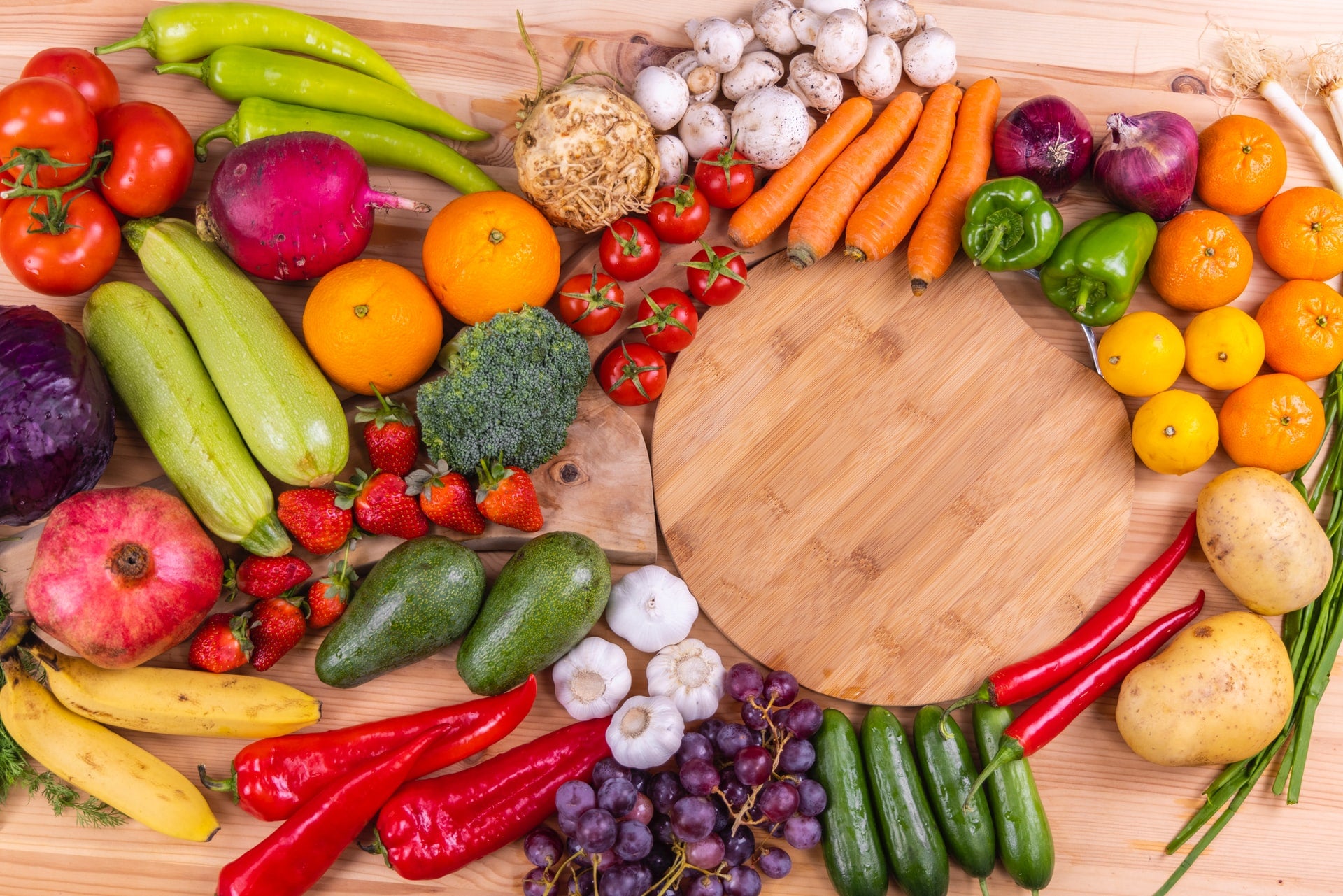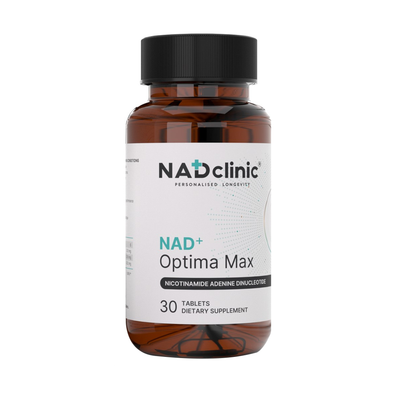Không thể phủ nhận rằng chế độ ăn uống lành mạnh, cân bằng là một trong những nền tảng của một cuộc sống khỏe mạnh và lâu dài. Vitamin, chất dinh dưỡng và khoáng chất tuy nhỏ bé nhưng lại đóng vai trò cực kỳ quan trọng trong việc duy trì hoạt động bình thường của cơ thể. Từ não bộ đến xương khớp, mỗi loại vitamin và chất dinh dưỡng đều có chức năng riêng, vì vậy việc cung cấp đủ lượng vitamin và khoáng chất cần thiết là vô cùng quan trọng. Nếu không, chúng ta có thể gặp phải những tác dụng phụ nghiêm trọng, ảnh hưởng tiêu cực đến sức khỏe hàng ngày cũng như gây ra các vấn đề lâu dài. Mặc dù thực phẩm bổ sung không bao giờ có thể thay thế một chế độ ăn uống lành mạnh, nhưng đôi khi chúng lại cần thiết. Ví dụ, một số tình trạng bệnh lý khiến cơ thể không hấp thụ đủ một chất dinh dưỡng cụ thể một cách tự nhiên, và việc bổ sung là cách duy nhất để bổ sung đủ liều lượng cần thiết. Các yếu tố khác như giờ làm việc dài, đi lại thường xuyên, chế độ ăn kiêng và lý tưởng đạo đức đều có thể ảnh hưởng đến khả năng duy trì chế độ ăn uống lành mạnh và đa dạng của chúng ta. Đó là lý do tại sao thực phẩm bổ sung lại hữu ích đến vậy.
Cơ thể sử dụng chất dinh dưỡng như thế nào
Khi chúng ta ăn, hệ tiêu hóa và các enzyme hoạt động để phân tách các chất dinh dưỡng khác nhau cho các mục đích khác nhau. Cơ thể chúng ta hấp thụ những gì cần thiết và thường thải bỏ phần còn lại qua đường bài tiết. Với một số chất dinh dưỡng, chẳng hạn như Vitamin A, cơ thể chúng ta sẽ dự trữ bất kỳ lượng dư thừa nào để sử dụng sau này, nghĩa là chúng ta không cần phải tiêu thụ nó mỗi ngày. Ngược lại, Thiamin (Vitamin B1) không thể được lưu trữ trong cơ thể, vì vậy chúng ta cần nó trong chế độ ăn uống hàng ngày. Một số chất dinh dưỡng dễ hấp thụ hơn những chất khác, và cơ thể chúng ta cần những lượng chất dinh dưỡng khác nhau. Ví dụ, lượng vitamin K cần thiết, một nhóm vitamin mà cơ thể cần cho quá trình đông máu và giúp vết thương mau lành, hoàn toàn phụ thuộc vào cân nặng của mỗi người. Người trưởng thành cần khoảng 1 microgam vitamin K mỗi ngày cho mỗi kg trọng lượng cơ thể, vì vậy một người nặng 70kg sẽ cần 70 microgam mỗi ngày. Có rất nhiều sự khác biệt trong cách cơ thể chúng ta tiếp nhận, xử lý và sử dụng các chất dinh dưỡng khác nhau, đây là lý do tại sao thực phẩm bổ sung có thể có lợi cho chúng ta.Thực phẩm và thực phẩm bổ sung
Như đã nói ở trên, không gì có thể sánh bằng một chế độ ăn uống lành mạnh và đa dạng, tuy nhiên, việc bổ sung thực phẩm chức năng kết hợp với chế độ ăn uống lành mạnh là một cách tuyệt vời để đảm bảo bạn nhận được tất cả các vitamin và dưỡng chất cần thiết cho cơ thể. Phương pháp kết hợp này đồng nghĩa với việc bạn sẽ nhận được những lợi ích tốt nhất từ cả hai phía, và ngay cả khi bạn bị bệnh, không thể tiếp cận thực phẩm lành mạnh hoặc đơn giản là quá bận rộn để lo lắng về việc ăn uống, bạn vẫn có thể cung cấp cho cơ thể mọi thứ cần thiết để hoạt động tốt nhất.Thực phẩm bổ sung NAD+
NAD+ là một chất tồn tại tự nhiên trong mọi tế bào sống của chúng ta và giúp kiểm soát mức năng lượng, cũng như mang lại nhiều lợi ích trị liệu. Những lợi ích này bao gồm:- Chống lão hóa
- Tái tạo tế bào
- Làm sáng da
- Giảm cân
- Thiếu ngủ
- Cải thiện khả năng tập trung và chú ý
- Tăng mức năng lượng
Chia sẻ
Featured products
Discover our most popular items

NADSQx Bút thông minh 1000mg
£399.00

Bộ kiểm tra cấp độ NAD+
£199.00
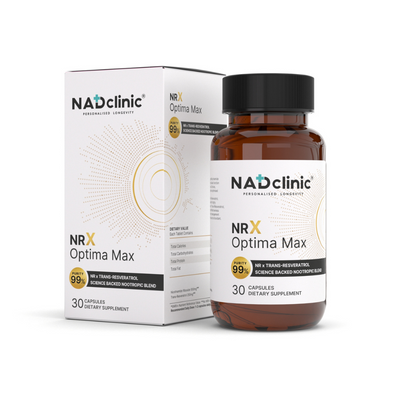
NRX Optima Max
£66.99
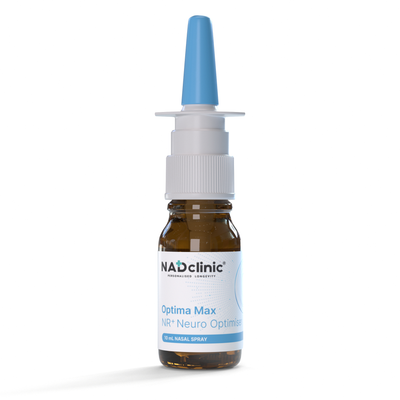
Optima Max - NR 点鼻薬
£34.99
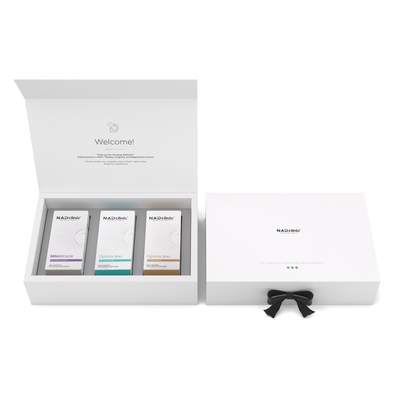
Tối ưu Max - Bộ hộp quà tặng
£264.99
Đọc thêm

6 cách bạn có thể giữ cho bộ não của bạn trẻ
Giống như các bộ phận khác trong cơ thể, não bộ cũng lão hóa. Các dấu hiệu của lão hóa não bao gồm mất trí nhớ, khó tập trung, và thậm chí là tình trạng sương mù não. Mặc dù lão hóa não là điều khô...
READ MORE HERE
Tuần hạnh phúc quốc tế tại nơi làm việc: 3 cách mà NAD+ bổ sung có thể giúp bạn cải thiện hạnh phúc trong công việc
Môi trường làm việc hạnh phúc nên là điều mà mọi công ty đều hướng tới. Niềm vui trong công việc không chỉ tốt cho nhân viên mà còn mang lại lợi ích cho chính công ty. Nhân viên hạnh phúc sẽ làm vi...
READ MORE HERE

